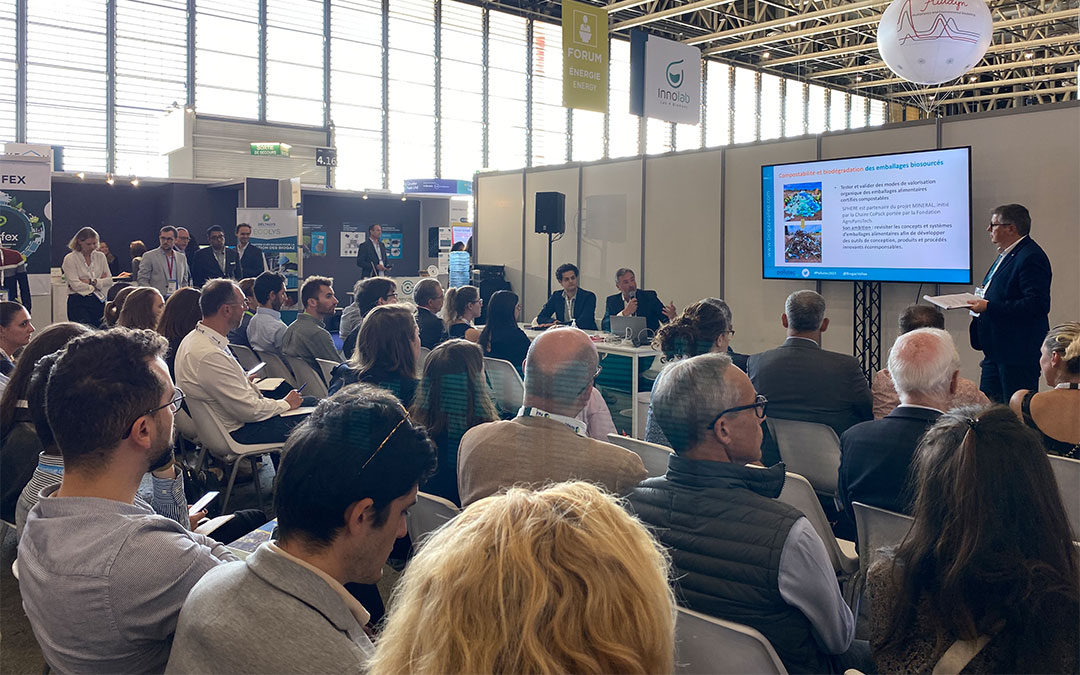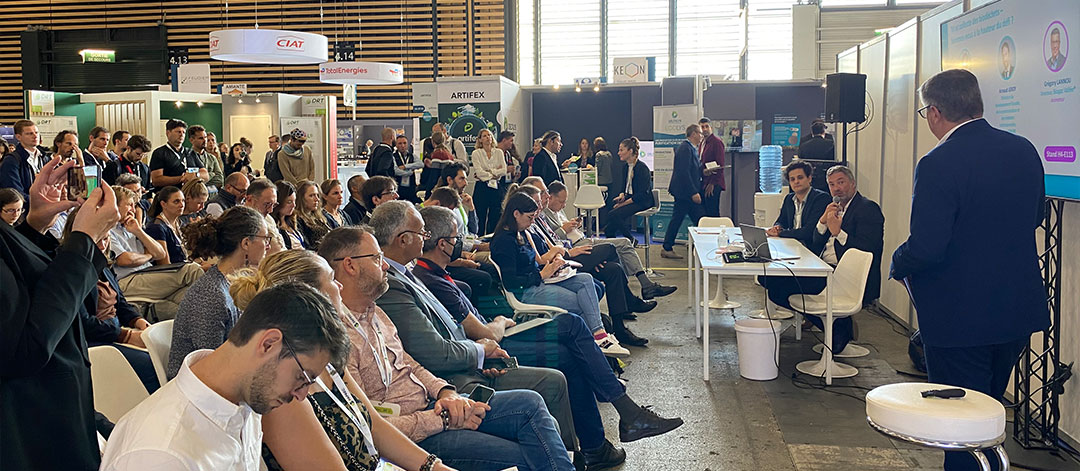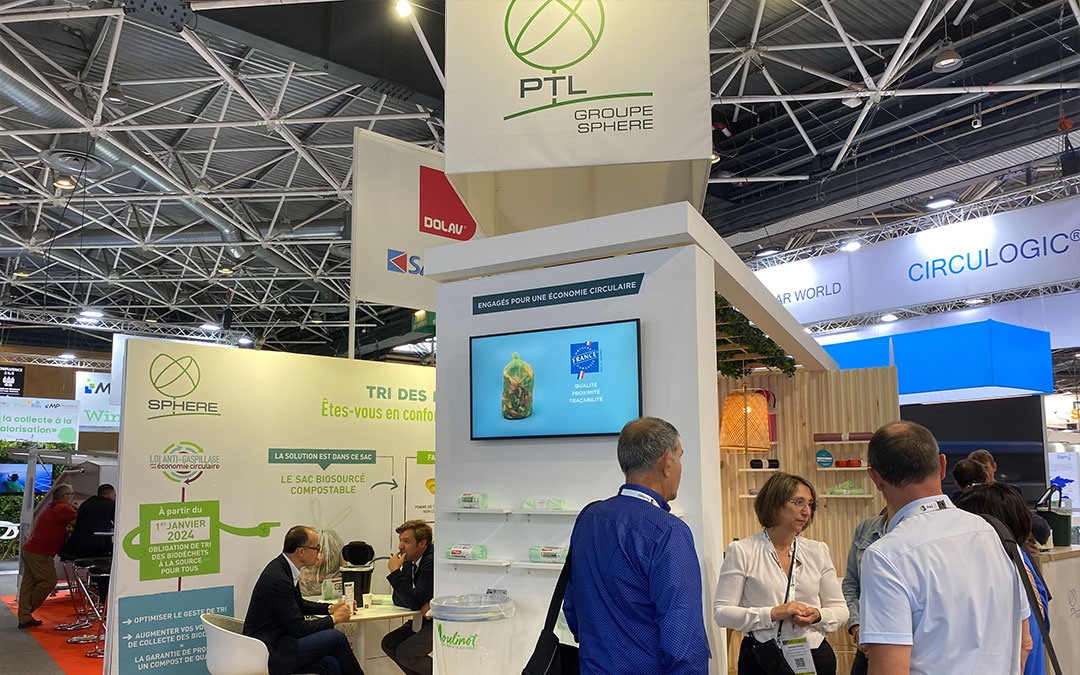

SPHERE Group, through its subsidiary PTL, welcomed the interest shown by the local authorities on the subject of biowaste during its participation in two major events at the POLLUTEC Trade Fair in LYON, France.
SPHERE Group participated, in front of nearly one hundred people, in the Round Table “Sorting and collecting biowaste – Are we up to the challenge?”, organised by Biogaz Vallée. Arnaud Leroy, SPHERE Group’s Director of Sustainable Development spoke alongside Grégory Lannou, Director of Biogaz Vallée, and Aziz Benaddou, Environment Business Manager for Elcimaï Environnement, providing concrete information with respect to the enforcement of the AGEC Law, which makes biowaste sorting mandatory at the source from 1 January 2024, for all producers: households, professionals and local authorities.
Each year, French households produce 18 million tonnes of biowaste, i.e. between 10 and 35 kg/inhabitant/year, which, for the time being, go to incineration or landfill. Yet this same biowaste could be recovered via domestic or industrial composting and by anaerobic digestion and thus contribute to enriching the soil and producing energy.
Local authorities are thus faced with a major challenge: not only must they organise collection and get involved in biowaste treatment and recovery, they are also required to contribute to facilitating a new sorting process.
According to Arnaud Leroy: “We need to set up a nationwide chain in France with all the players around the table, in which we will be one of the links, offering solutions such as the pre-collection bag for biowaste and ongoing work with the local authorities that translates into educational information for local residents”.
All the speakers made references to other topics inherent in biowaste:
- The implementation of studies on the optimisation of waste collection and the renewal of contracts, in particular bio-waste.
- The collection methods that need to be implemented at the local level.
- Reports from the ground, in France and among our European neighbours, particularly in Italy, as well as the impacts for the biowaste treatment and recovery sectors.


PTL – SPHERE at Pollutec
The stand run by PTL, a subsidiary of the SPHERE Group, also attracted a large audience, with more than 200 visitors looking for solutions to setting up the collection of biowaste.
- The local authorities requested information on the different types of bags offered by PTL, and asked about the benefits of a biosourced compostable bag compared to a paper bag.
- Other local authorities having already set up collection operations were interested in offering our ranges of bags and covers for professionals.
- Private companies were in search of ways to optimise the collection of biowaste in company cafeterias.
- Collectors and sorting centres requested details on compostable protective covers for containers and pallet crates.
- Design offices commissioned by the local authorities were looking for solutions in the context of calls for tender.
- Wholesale operators from Martinique and Réunion, meanwhile, sought general information.
SPHERE Group, a partner to local authorities for more than 40 years
As a partner to numerous local authorities in France and Europe, SPHERE bases its development on close cooperation with elected officials and heads of technical services. From simple forward-looking management of endowments by type of housing, seasonal variables and the implementation of distribution, to the collection bags collected at the sorting centre to be integrated into the Group’s recycling channel, SPHERE offers local authorities “à la carte” services in accordance with specifications drawn up jointly. SPHERE takes an active part in implementing new collection concepts, in particular with the principle of the paid bag, which offers a strong incentive to sort and reduce the volume of waste. With 1st January 2024 just around the corner, SPHERE has positioned itself as a facilitator for the implementation of biowaste sorting and collection. Lastly, the bag is an excellent vehicle for communication. In addition to sorting instructions, it can bear the local authority’s logo, information about collection or any other message. All of which means significant added value for local authorities.